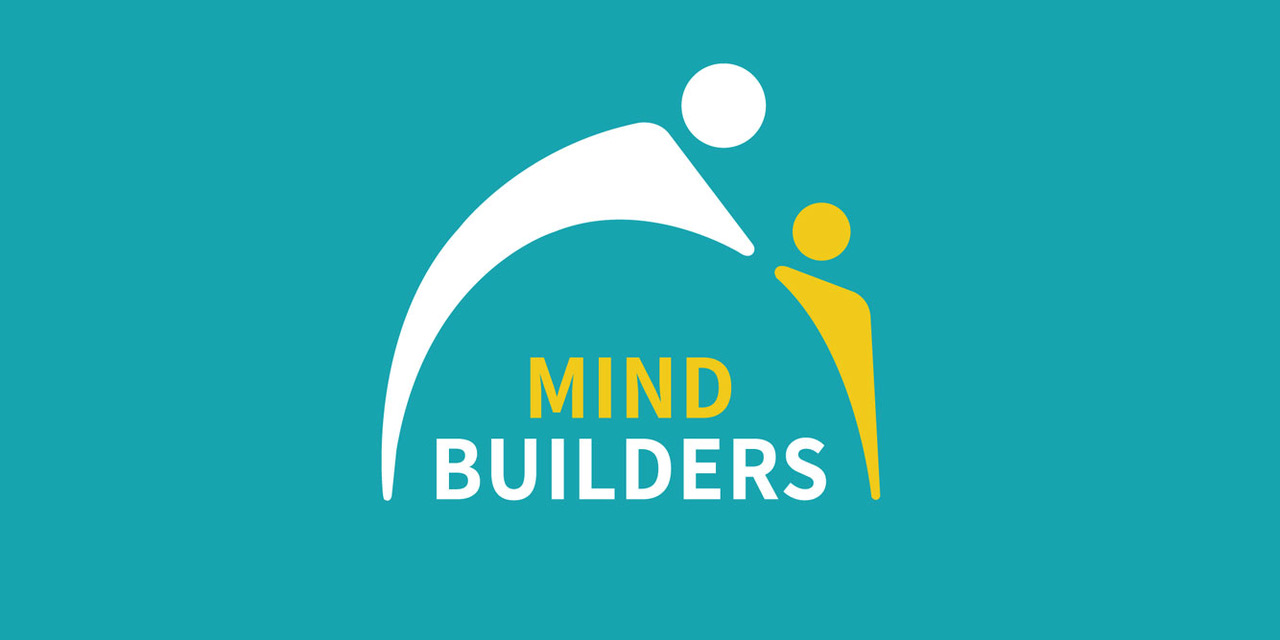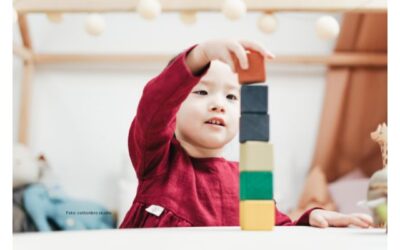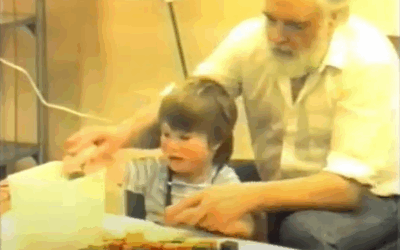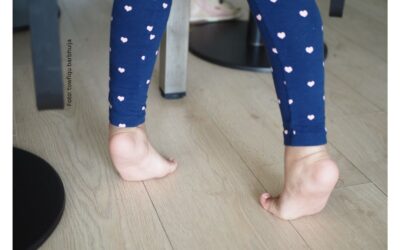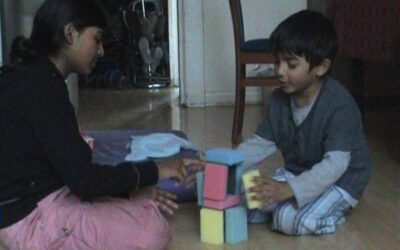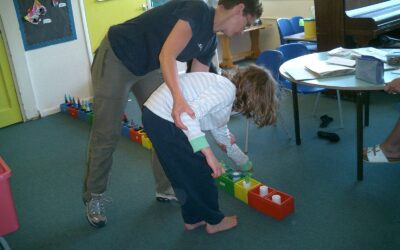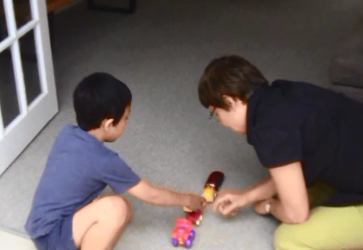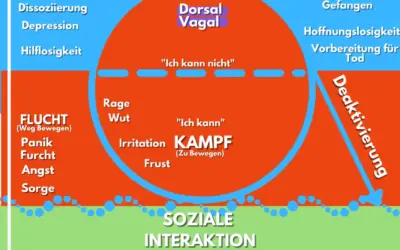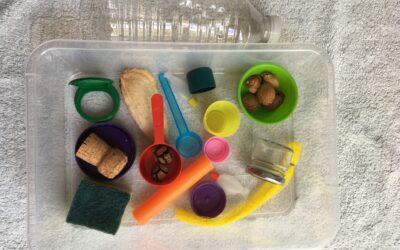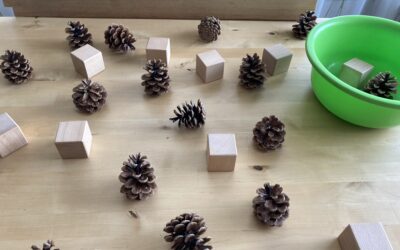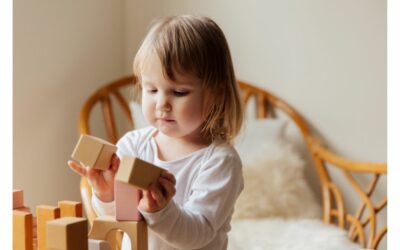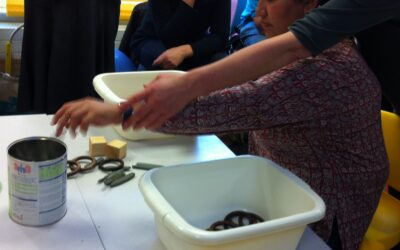Tips, Ideas & Stories
Türme bauen ist eine Entwicklungssackgasse
Türme aus Bauklötzen zu bauen ist eine Beschäftigung, die von den Erwachsenen oft begrüßt und als fortgeschritten angesehen wird. Aber Kinder (und Erwachsene), die sich für das Bauen von Türmen begeistern, neigen dazu, bei dieser Idee stecken zu bleiben und tun sich...
Kinder, die nichts tun und sich nicht erreichen lassen
Was kann man tun, wenn sich ein Kind über interaktives Spiel wie in Floortime einfach nicht erreichen lässt? Wenn es das gar nicht wahrnimmt? Wenn es nichts tut und tun will? Wenn es nur hin und her rennt, auf dem Boden sitzt, herumliegt, oder endlos mit irgendwas...
Strategien für gesundes Essen
Gesunde Ernährung ist fundamental für Entwicklung und Lernen. Aber viele Kinder sind wählerisch oder haben Schwierigkeiten mit dem Essen. Um ihnen zu helfen, ist es wichtig zu wissen: Worin besteht die Rolle der Eltern/ Betreuer? Was sollte man tun und was sollte man...
Auf Zehenspitzen gehen
Wenn Kinder häufig auf Zehenspitzen gehen, handelt es sich nicht einfach um eine motorische Eigenheit, sondern um eine tiefgreifende körperliche Reaktion auf inneren Stress, die sich schnell etablieren und zu einer schwer zu überwindenden Gewohnheit werden kann....
30 Floortime-Spielideen: Was kann man damit NOCH machen?
Die Schlüsselfrage für kreatives Floortimespiel ist: Was kann man damit NOCH machen? Das könnte ein Gegenstand sein, oder eine Bewegung, oder auch nur ein Blick. Anstatt den Fokus darauf zu legen, dem Kind beizubringen 'Wie man das richtig macht' und bei funktionalen...
Warum kleine Störungen gut sind
Was wir aus dem Still-Face-Experiment für DIRFloortime lernen können Wenn wir mit Kindern arbeiten – sei es als Eltern, Therapeut:innen oder Pädagog:innen – streben wir oft nach Harmonie, Feinfühligkeit und reibungsloser Interaktion. Aber wie uns die...
Kinder mit ASS in Kita und Kindergarten fördern
Was brauchen Kinder in Kita und Kindergarten von den Betreuern, wenn sie sich nicht beteiligen, nicht mitmachen, sich nichts zeigen lassen wollen? sich nicht für die vorhandenen Spielmaterialien oder Abläufe interessieren? auf einem eingeschränkten Repertoire von...
Was ist Floortime?
Was genau ist eigentlich Floortime? Bei Floortime handelt es sich nicht einfach um eine weitere Methode oder Kurzfortbildung, die man hin und wieder auch mal anwenden kann, - sondern um eine HALTUNG mit einem ganzheitlichen Menschenbild. DIRFloortime beschreibt eine...
Herausforderndes Verhalten verstehen (grün-rot-blau)
Oft werden wir mit herausfordernden Verhaltensweisen konfrontiert, zum Beispiel wenn ein Kind sehr kontrollierendes Verhalten zeigt und einfach nicht mit etwas aufhören oder auf seinem Willen bestehen will. Traditionelle Methoden mit rationalen Erklärungen an den...
Wasserspiel am Tisch
Wasser ist dieses einzigartige Medium, das einen umhüllt und keinen Widerstand zu leisten scheint, einen tragen kann, sich aber nicht festhalten läßt. Um es zu halten bedarf es eines Behälters, der dem Wasser eine Form und Begrenzung gibt, und dann eines zweiten...
Frühes Spiel & Lernen: Die 6 Grundprinzipien
Lernen beginnt mit dem TUN. Und das Tun erfordert vor allem unsere Hände. Kleine Kinder sind in der Regel unablässig damit beschäftigt, nach Dingen zu greifen, sie „haben“ und in die Hand nehmen zu wollen. Und das ist von entscheidender Bedeutung, denn auf diese Weise...
10 Grundaktivitäten für Frühes Spiel & Lernen
Die folgenden 10 fundamentalen Spielaktivitäten und rudimentären Bewegungsmuster muss ein Kind gut genug entwickelt haben, um spielen und lernen zu können, da alles weitere Lernen auf diesen Fähigkeiten aufbaut: 1. Nehmen und reintun/ablegen: Gegenstände mit den...
Was brauchen Kinder, die nicht spielen und lernen können?
Immer mehr Kinder haben Lernschwierigkeiten, was heutzutage immer häufiger zu einer Autismus-Diagnose führt. Sie haben oft nur wenige Aktivitäten, mit denen sie sich beschäftigen, was zu einem Teufelskreis von immer weniger neuen und engeren Erfahrungen führt. Das...
Game activity: Form pairs
Matching is first about understanding that two objects form a PAIR because they are more similar than different, even if they are not exactly identical. Early matching begins with learning to match two identical objects that are...
Guide for the Waldon companion
The Waldon learning facilitator (parent and practitioner) in the non-interactive learning lesson is aware that: The child learns primarily through his or her own movements in the available* physical space (*sometimes physical limitations restrict the child's...
